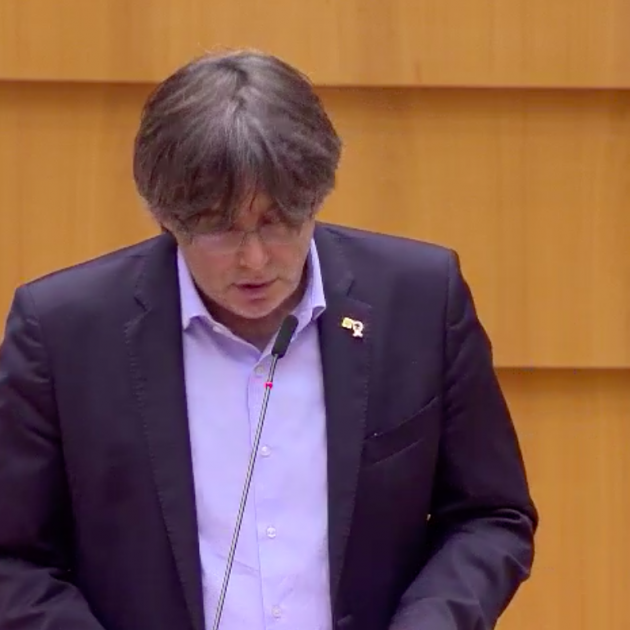Twenty-five years after the 1995 Barcelona Declaration, Catalan MEP Carles Puigdemont used the European Parliament debate on the subject to denounce two EU disappointments of that quarter century, while the Union's foreign affairs chief Josep Borrell looked on: firstly, the patent failure of the declaration itself, aimed at founding a regional partnership among countries around the Mediterranean, and as well, the fact that the city where the declaration was signed, Barcelona, has become the centre of some of the "EU's fiercest political repression" since 2017.
Puigdemont warned that today Europe does not have the moral authority it had 25 years ago, when that conference on the Mediterranean was held. And as well, he said, there was a paradox: "Barcelona, the capital of Catalonia, which gives its name to the declaration, for the last three years has been the setting for the fiercest repression that an EU state has inflicted on two million of its citizens who only wanted to vote," he affirmed in front of the EU chamber.
The pro-independence MEP warned that as long as the EU does not deal with this situation it will not have the strength it needs to respond to threats to freedom in the region.
Dramatic retrogression
In the one-minute speaking time which MEPs receive, Puigdemont commented that the declaration, which was the result of a clear vision for the future of the entire Euro-Mediterranean region, had failed to meet its goals 25 years later, as a result of falling behind on essential issues which, apart from a few exceptions, has caused a "dramatic" retrogression.
"The Mediterranean has become a great mass grave where the hopes of millions of human beings are lost, and not the reference point of shared peace, stability and prosperity that we had conceived and promised. This failure is also our responsibility," he declared.
Puigdemont's intervention did not receive a response from Borrell, as usual, but it did provoke the reaction of some of the Spanish MEPs, such as the Popular Party MEP Francisco José Millán, who followed him in the speaking order, and asserted that the Euro-Mediterranean context has changed greatly in the last 25 years and that the Europe of Brexit is experiencing an increase in anachronistic populisms and radical nationalists. “As we just heard,” he concluded.
